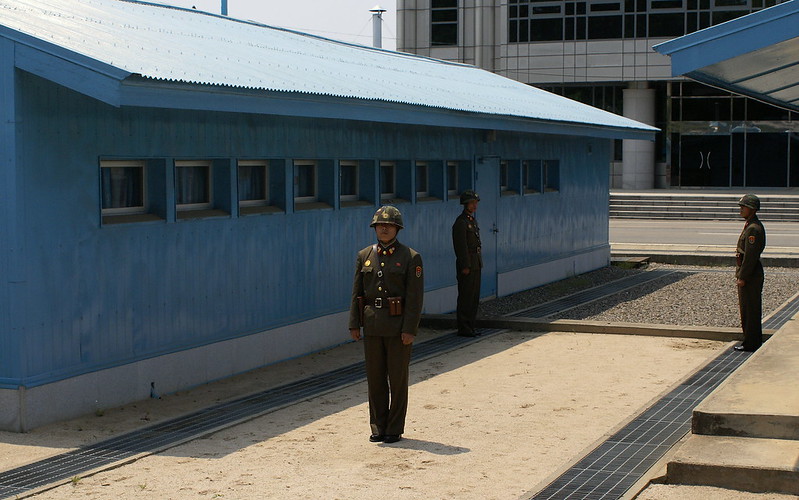Military agreement suspended: the last legacy of Moon's dialogue between the Koreas vanishes
The no-fly zone around the demilitarised zone will no longer be in force. The measure decreed by the Seoul government after Pyongyang put a satellite into orbit. For South Korea, the same missiles could also carry nuclear warheads. The sanctions packages decreed by the UN are ineffective with respect to the development of military technology.
Seoul (AsiaNews) - South Korea has partially suspended the inter-Korean military agreement. This is what was approved by the government chaired by Prime Minister Han Duck-soo during an extraordinary meeting held yesterday morning.
Han said the partial suspension of the agreements had become indispensable to ensuring South Korea's self-defense, and therefore security. Suggesting that the military agreement had contributed to limiting the military's ability to detect (and possibly respond to) ) to potential long-range artillery attacks by North Korea, which in the event of a conflict would make the densely populated area around Seoul especially vulnerable.
Pyongyang itself responded this morning by declaring that it "no longer feels bound by the agreement" and that it intends to deploy "new type military devices" in the region close to the demilitarized zone (DMZ).
The agreement was signed on September 19, 2018, and was, together with the Panmunjeon declaration, the legacy of that brief but historic period of détente that had characterized Moon Jae In's government and which today seems increasingly distant.
In particular, the third clause of the first article was suspended, which provided for the creation of a no-fly zone that both the armies of South and North Korea would respect near the demilitarized zone.
What made the initiative, approved by President Yoon currently in Great Britain, urgent was in fact the successful putting into orbit of the Malligyong-1 satellite by North Korea. The satellite, which will serve as a reconnaissance tool, entered orbit on Tuesday night and while it is still early to determine the extent to which its technology will enable the North to surveil its enemies, the event alone is set to further exacerbate the increasingly precarious tension on the peninsula.
“North Korea's launch of a so-called military reconnaissance satellite, whether successful or not,” President Yoon said, “is primarily aimed at developing the surveillance capabilities and performance of its intercontinental ballistic missile in an effort to materialize the its nuclear and missile threats."
The risks for Korea and Japan do not derive exclusively from the satellite's ability, whether more or less developed, to act as a reconnaissance instrument. The event confirms a worrying aspect of the development of North Korea's missile program. The country has in fact demonstrated that it is in possession of missiles that could potentially carry a warhead of the same size as the satellite.
This shows how North Korea's development of military technologies is making progress despite 11 tough UN sanctions packages, raising doubts about their effectiveness. Sanctions have always been the way the UN has responded to North Korea's nuclear program, and new sanctions could be announced now.
However, not only have the old packages not proven effective enough, but new sanctions may be difficult to implement. On the one hand, in fact, given the country's isolation during the pandemic, there is little left to sanction at the moment.
But in addition to this, the position of China and Russia weighs heavily, recently accused by South Korea of receiving munitions from the North. Beijing and Moscow are the country's largest economic partners and have shown little interest in implementing new sanctions packages, seen as a Western strategy to use the international economy as a weapon, and may not support further initiatives.
Photo: Flickr / Robert Sepherd
12/02/2016 15:14
17/05/2022 14:54
22/02/2022 14:29
28/11/2024 16:35







.png)










